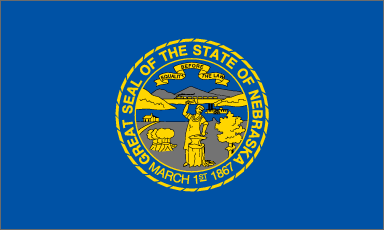The signature deadline for Nebraska ballot initiatives was July 7. Citizens for Voter ID, the campaign behind an initiative to require voter identification, submitted over 170,000 signatures.
In Nebraska, the number of signatures required to qualify an initiated constitutional amendment for the ballot is equal to 10% of registered voters as of the deadline for filing signatures. Because of the unique signature requirement based on registered voters, Nebraska is the only state where petition sponsors cannot know the exact number of signatures required until they are submitted. Nebraska law also features a distribution requirement providing that petitions contain signatures from 5% of the registered voters in each of two-fifths (38) of Nebraska’s 93 counties. As of July 1, the number of registered voters in Nebraska was 1,239,599, which means that the estimated number of required signatures is 123,960.
The initiative would amend the Nebraska Constitution to require a valid photo ID in order to vote. The amendment would leave the regulation of photographic identification up to the Nebraska State Legislature. Currently, voters do not need to present identification in order to vote in Nebraska. A voter may be asked for identification if the voter is a first-time registrant who mailed in an application and did not provide identification at that time.
Twenty states have active photo voter ID requirements. In 2018, North Carolina voters passed an amendment to require photo voter identification, but it was enjoined by a court.
The Nebraska initiative received the endorsement of Gov. Pete Ricketts (R). “Showing ID when they go to vote, it’s one of the ways we can strengthen the integrity of our elections. It’s a great opportunity for the second house, the people of Nebraska, to be able to weigh in a way where the Legislature has not been able to get it passed,” Ricketts said.
The initiative is opposed by Civic Nebraska, Black Votes Matter, League of Women Voters of Greater Omaha, and Nebraska NAACP. Civic Nebraska said, “The only thing we are certain these measures would do is to make it harder for eligible Nebraskans—especially young, low-income, rural, black and brown, and senior Nebraskans—to freely and fairly cast a ballot.”
Between 2010 and 2020, an average of seven initiatives were filed with an average of one making the ballot during each election cycle.
Additional reading:


